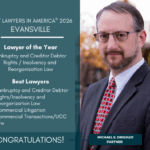In 2013, capital gains tax rates are scheduled to increase to 20%, up from the current rate of 15%. In addition, the so-called “Medicare surtax” of 3.8% will be assessed against net investment income, which will include taxable gains on the sale of “passive” investment real estate. Due to this anticipated increase in tax rates, owners of rental property or other investment real estate who are planning to sell may want to think about using a 1031 Like-Kind Exchange to defer the recognition of tax on the gain.
To qualify for Section 1031 tax deferral, there are several rules that must be carefully followed. The transactions must be structured as exchanges, and must involve an exchange of real property located in the United States which is of ‘like-kind”. Many different kinds of property qualify as “like-kind” to one another – for example, vacant farm ground can be exchanged for an apartment complex, or a rental house can be exchanged for a commercial strip mall. So long as the property is being held for investment purposes or for productive use in a trade or business, and it qualifies as a real property interest under state law, it should qualify. Caution needs to be exercised in the case of an exchange involving a vacation home, as there are strict rules limiting the amount of personal use of the owner in order for the vacation property to qualify for 1031 exchange treatment.
There are also strict timing rules that must be followed. If the sale and purchase of the like-kind property does not occur simultaneously, a “qualified intermediary” selected by the property owner can be hired to hold the funds from the sale property and then use the funds to acquire title to replacement real estate within 180 days of the closing on the sale property. The property owner must provide a specific written identification of potential replacement property to the qualified intermediary within 45 days from the date of sale.
There are other rules and complexities involving 1031 exchanges. If you wish to discuss whether a 1031 exchange is advisable for your investment real estate, contact Allison Comstock or a member of the KDDK Real Estate Law practice team.
IRS Circular 230 Disclosure. To ensure compliance with U.S. Treasury Regulations governing tax practice, we inform you that any tax advice contained in the foregoing material was not written or intended to be relied upon, nor can it be used, by any taxpayer for the purpose of (i) avoiding tax penalties or (ii) promoting, marketing or recommending to another person any tax-related matter or transaction.






